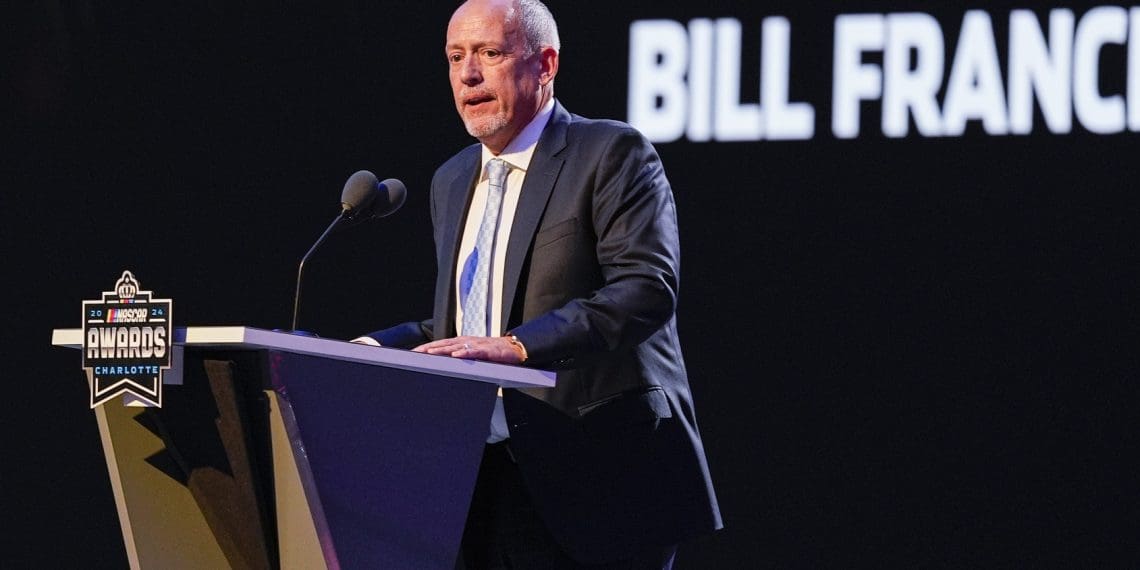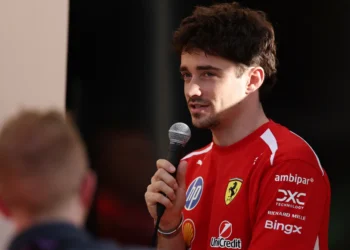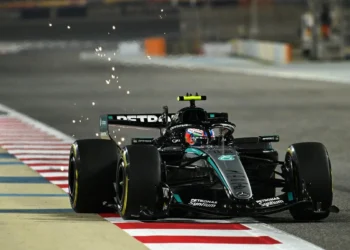The NASCAR courtroom battle just took a dramatic turn, as Federal Judge Kenneth Bell handed Michael Jordan’s 23XI Racing and Front Row Motorsports (FRM) a crucial win in their ongoing lawsuit against the racing giant. This decision, granting a preliminary injunction, not only ensures the teams’ chartered status for the 2025 season but also tips the scales in favor of Jordan and his allies as they press their case against NASCAR’s alleged monopolistic practices.
For decades, the France family has dominated stock car racing. But with new revelations potentially on the horizon, NASCAR’s future might be more vulnerable than ever.
The Turning Point: Judge Kenneth Bell’s Entry
The lawsuit filed by 23XI Racing and FRM hinges on accusations of monopolistic practices by NASCAR, including its ownership of International Speedway Corporation venues, restrictive team rules barring competition in rival series, and control of the ARCA Menards Series. Initially, Judge Frank Whitney denied the teams’ request for expedited discovery and their first preliminary injunction.
That all changed with Judge Kenneth Bell’s appointment. Bell approved the teams’ second preliminary injunction motion, ensuring their financial stability for the 2025 season and allowing them to race as chartered teams. This decision grants them critical leverage to continue their fight and paves the way for the discovery phase—a potentially explosive stage of the lawsuit.
The Discovery Stage: NASCAR’s Secrets at Stake
Discovery will compel NASCAR and the France family to reveal private financial records, including executive compensation, revenue streams, and cost structures. Legal experts and industry insiders, like Eric Estepp, have pointed out how this could place immense pressure on NASCAR to settle.
“The France family does not want those records to be made public… NASCAR is feeling immense pressure… Suddenly, NASCAR does not seem to have the leverage they’ve had before,” Estepp explained in a recent video analysis.
If this financial information becomes public, it could reshape perceptions of NASCAR’s operations and its treatment of teams. It might also embolden other stakeholders to demand transparency and equitable revenue sharing.
Michael Jordan’s Cultural Leverage
Jordan’s entry into NASCAR with 23XI Racing in 2020 brought a new wave of fans and visibility to the sport. His star power, combined with the team’s success—like Tyler Reddick’s regular-season championship and Championship 4 berth in 2024—has reinforced 23XI’s position as a top-tier competitor. The potential sidelining of 23XI and FRM would have drawn backlash from fans and sponsors alike, a fact Judge Bell noted in his ruling:
“NASCAR fans (and members of the public who may become fans) have an interest in watching all the teams compete with their best drivers and most competitive teams,” Bell stated. “Further, the public has an interest in preserving the rights of litigants to pursue legal claims in good faith, particularly antitrust claims that aim to preserve the process of commercial competition.”
Jordan’s cultural influence and the team’s rising performance have shifted public favor against NASCAR, further eroding the organization’s leverage.
NASCAR’s Dim Prospects: The Pendulum Swings
For years, NASCAR’s dominance over its teams seemed unassailable. Its ability to enforce compliance through exclusive agreements, control over charters, and restrictive rules made it the unquestioned leader in U.S. stock car racing. However, the lawsuit has exposed cracks in that dominance. Estepp noted that the decision is likely to embolden teams and tilt negotiations in their favor:
“Over the past two years… it felt like NASCAR had the most leverage. But with this decision, the pendulum has certainly swung back in the direction of the teams.”
The France family, long accustomed to ruling NASCAR unchallenged, now faces the very real possibility of losing control over the narrative—and perhaps even the sport’s structure.
What’s Next for NASCAR?
The ruling has already altered the balance of power, but the lawsuit is far from over. NASCAR could appeal the preliminary injunction, delaying the impact of the ruling. However, the specter of publicized financial records and growing unity among teams puts NASCAR in a precarious position.
The bigger question is whether this lawsuit will force systemic changes within the sport. Could this be the beginning of a more transparent, equitable NASCAR? Or will the France family find a way to maintain its grip on stock car racing’s future?
A Watershed Moment for NASCAR
Michael Jordan and 23XI Racing’s courtroom win is about more than charters or team expansion. It’s a challenge to NASCAR’s very foundations. With the discovery phase looming, the sport’s most guarded secrets could soon come to light, potentially ushering in an era of unprecedented change.
The stakes couldn’t be higher—for NASCAR, for its teams, and for fans. One thing is certain: the battle for the soul of stock car racing has just begun.








